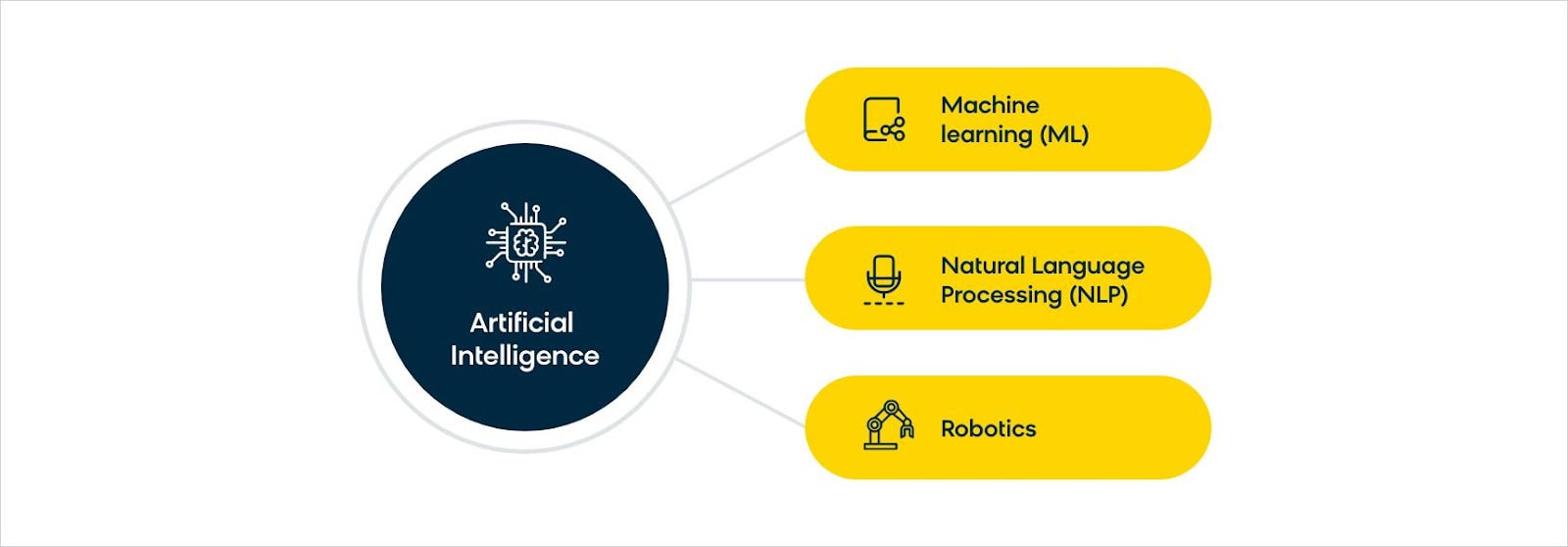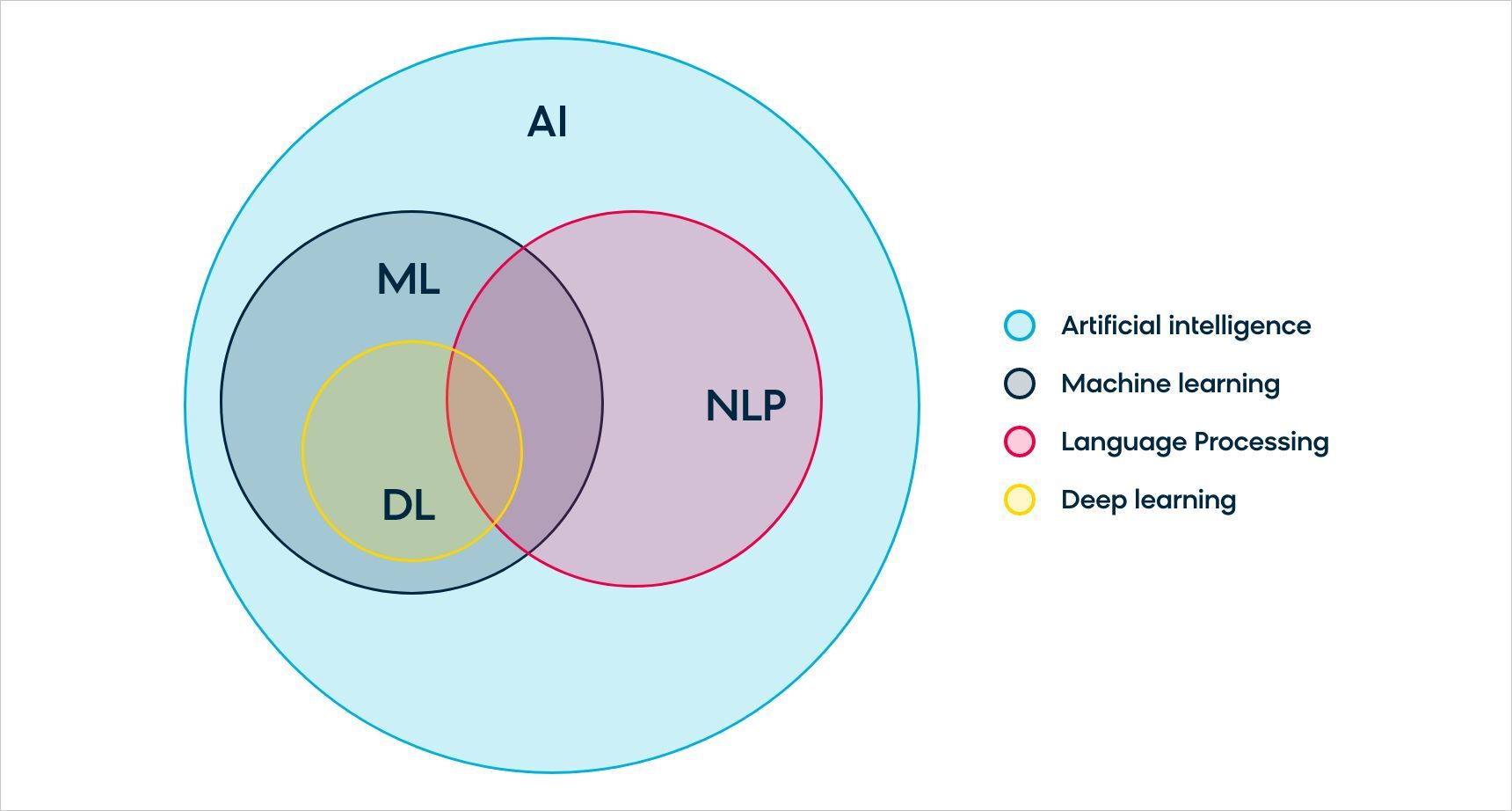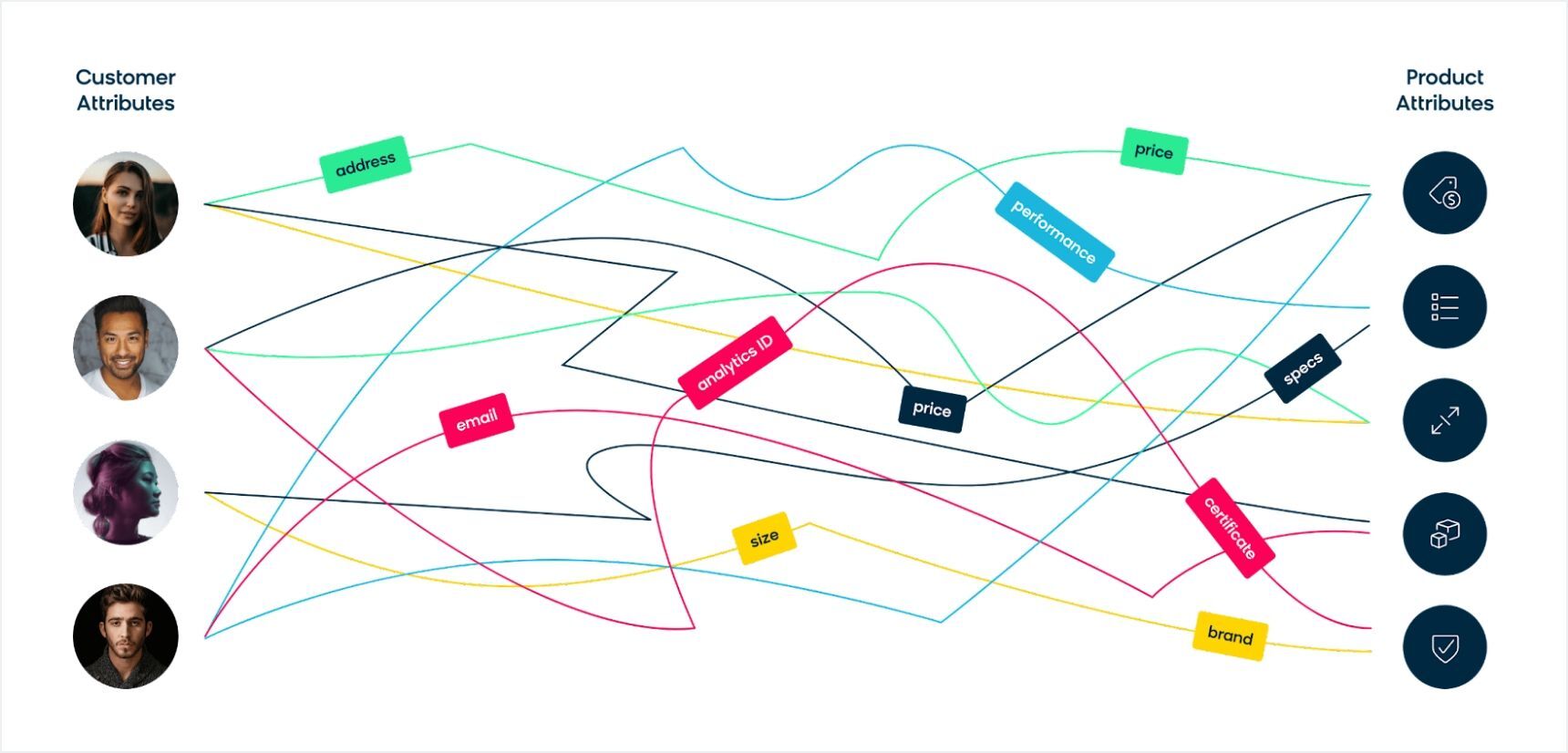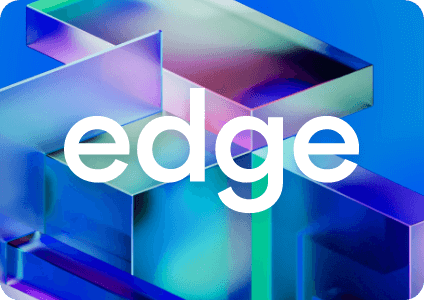The early days of artificial intelligence (AI) weren’t as shiny or sleek as our science fiction movie favorites would lead us to believe. But it’s no wonder these depictions are so heavily ingrained in our imaginations — after all, humans have been mulling over the idea of the mechanical man since the days of the early mathematicians, theologians, and philosophers.
Being captivated by the idea of artificial intelligence has worked in our favor, though. Fast-forward to 2010, and AI very clearly became embedded in our day-to-day lives. Smartphones started coming prepackaged with AI-driven capabilities, from facial recognition features to apps with global localization. Soon after, virtual assistants like Siri, Alexa, and Google Assistant transformed into household names synonymous with convenience and productivity. And, before we knew it, cars were driving themselves, and we were communicating with these virtual friends through mobile apps.
As you can see, AI is quite an umbrella term, and its meanings are so diverse and complex that they can often be lost or even taken for granted. To overcome this misunderstanding, it’s crucial to grasp how AI breaks down into multiple types, applications, and tasks.
Ready to take a deep dive into the world of AI? Here are some basic questions we’ve answered that can help you understand what artificial intelligence can do for ecommerce businesses — and specifically for site search.
What Are the Most Common Applications of AI?
From automotive and banking to healthcare and manufacturing, AI fills in voids that businesses experience every day. Whether it’s supplementing people or processes, AI can be very helpful across departments — think customer service, marketing, or sales. Yet, all the diverse ways AI can be segmented and used effectively are a bit mind-boggling, making it intimidating to get started. First, you’ll have to understand some of the most popular types of AI applications:
- Machine learning (ML) – ML focuses on using data and algorithms to mimic how humans learn. The goal of ML is to gradually improve a machine’s accuracy over time, so it can supplement human labor on easy-to-automate tasks.
- Natural language processing (NLP) – Like machine learning, natural language processing concerns itself with understanding text and spoken words in the same ways humans can. It does this by analyzing the syntax, semantics, and characteristics of everyday language.
- Robotics – Yes, it’s true. Robots are prevalent in AI. Robotics centers on the development of machines to accomplish tasks. For instance, the machinery that automates processes on a factory floor or in a fast food restaurant is a good example of AI robotics.
Which Businesses Are Currently Using AI Well?
So, now that you better understand the applications of AI, let’s look at how businesses in today’s market use it to their advantage. We see many strong examples across multiple sectors, including these few shining stars who are using the technology exceptionally well:
- Walmart – Walmart uses ML and image processing in all of its locations to keep its storefronts running smoothly and take the strain off of its team members. With everything from weighted sensors and shelves to video cameras, Walmart’s AI handles inventory management, detecting when products are running low — or even if produce is starting to lose its quality — to get a better sense of ordering patterns.
- UnitedHealth Group – This popular healthcare and insurance company deploys NLP to sort through the millions of calls they get to their customer service line each day and improve patient experiences. UnitedHealth Group is also no stranger to ML, using it to authorize payments for doctor-recommended medical procedures.
- Citigroup – Commonly known as Citi, this American multinational investment bank uses NLP to better understand customer activity. Since they operate in more than 160 countries, Citi wants to ensure that financial transactions are completed compliantly within the confines of the law across the diversified geographies they represent.
- MKM – MKM is the largest independent builder’s merchant in the United Kingdom with 2,500 employees and over 100 branches across England, Scotland, and Wales. The brand revamped its site search experience with self-learning AI algorithms that evaluated both product and customer data. With these changes in its approach to ecommerce, MKM increased total web traffic by 43% and saw a 7.9% lift in average order value online.
How Does AI Become Smarter Over Time?
The examples above talk a lot about self-learning AI that typically happens through ML and NLP. But how does this “self-learning” happen, exactly? Data and AI share a mutually beneficial relationship. AI can assist with data aggregation, storage, and retrieval, while the data from customer interactions informs the AI and helps it become increasingly efficient.
Since there is a shortage of data scientists, AI can supplement and crunch large volumes of consumer data, product catalogs, and purchase history. It’s a huge advantage in gathering deep analysis to improve decision-making and assess the goals and risks for your ecommerce business.
What Is AI-Powered Ecommerce?
So far, we’ve discussed the applications and uses of AI. We’ve even delved into how AI becomes smarter over time. But you might still be wondering how AI ties into ecommerce. Well, there’s no doubt that online shopping has changed a lot in the past decade, especially since the quarantine days of the COVID-19 pandemic, and the customer experience has become increasingly important. To scale digital experience effectively, ecommerce brands need the help of AI tools. It’s not only illogical for one person, or even a team of people, to take this project on without AI — it’s impossible.
Artificial intelligence in ecommerce is simply everywhere if you take a look around. In fact, it can be incorporated into each touchpoint of the customer journey, from customer acquisition to product discovery. Online retailers and brands use AI technology to analyze customer behavior and create customer segmentations, seamless automation, targeted marketing campaigns, personalized product recommendations, and more. Of course, AI can also assist with site search.
Where Can Self-Learning AI Step in With Search?
Smart site search is one of AI’s most important contributions to the ecommerce industry — and the online shopping world as we know it. As the internet continues to refine itself, most businesses have come to realize that product discovery is just as important as the transaction. If online shoppers can’t find (or stumble upon) what they’re looking for, then how can they convert?
Enter self-learning AI, which can extract meaning from the titles and descriptions of your product catalog, as well as words and phrases from your customer’s search queries, to match their intent. After the retrieval process, it ranks your products and services appropriately, balancing learned ranking data with semantic relevance.
Beefing up your business’ search bar with self-learning AI is one of the most significant steps you’ll take when building personalized digital experiences. If done right, your team will notice improved conversion rates, revenue per visitor, average order value, time to build a basket, and more.
When the search bar does its job, you can drive conversions by guaranteeing relevant, personalized search results to your customers. Learn more about how self-learning AI can revamp your search bar, and check out an interactive tour of our Discovery offering today.


















